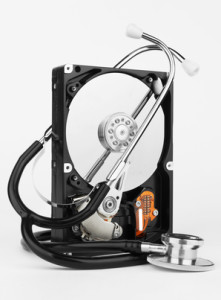
By Andy Ebon “Wedding Marketing Expert”
Deferred Maintenance is a soft phrase with a devastating meaning. In the Mobile DJ industry, it’s easy to stay behind the booth, in a bubble, entertaining the masses, focused on the music and emcee duties; unaware that your company is falling behind in a competitive race.
People hear what the see: Get out from behind the console and see your equipment from the audience view. Today, there are a myriad of finished consoles, front-faced facades, and even fabric coverings for speaker stands and such.
There are many good options for the physical presentation of your gear. Looking sharp is not a costly options, and it creates an instant positive awareness of your company.
The Details: From a moderate distance, there should be no distractions to the eye. Cables and cords should be buttoned down, neatly. When was the last time you dropped in on an event, unannounced? Did the staff suddenly panic?
You can also drop by, anonymously (with client permission) and take a look. Having the utmost confidence in your staff is a good outlook. Hopefully, you’ll catch them in the act of doing everything right, but if not, refreshing best practices.
Are you driving on bald tires?: I see this as euphemism for passively allowing failure. Whether we are talking about laptop computer failure, amplification, batteries, or myriad of other potential issues, failure is often avoidable.
There is a difference between emergency and obsolescence. Every rig should be stocked with all the appropriate backup equipment, all the time.
Batteries for wireless mic
Hard wired
Built-in backup amplification
Back-up music source
Extra audio cables
… and the list goes on
It’s important to train for failure, so when the emergency occurs, your staff member doesn’t have to think. It’s not a bad thing to have a printed trouble shooting guide for certain situations. For example, if there is a power failure (which doesn’t originate with your equipment) what’s the proper sequence of turning electronics off, and, when the power returns, turning things back on.
Obsolescence is the avoidable failure: Just like checking the tires, knowing the half-life of a computer hard drive, rotating amplifiers every six months, and other scheduled procedures will usually help you avert trouble, rather than have it surprise you.
Software Upgrades: Both for the office and for the computer-driven music system, software is the heartbeat of your work. There are upgrades for improved features and others for security/safety. These must be executed in a timely fashion and communicated to all DJs, emcees, and other staff members.
Avoiding computer viruses and hacking makes security updates paramount. After those are completed, take some time to understand the new features of software and make sure people are trained, up to the moment.
Big-Time Deferred Maintenance: Upgrading from CDs to computer-driven system is an obvious one. It’s not just about money, it’s a complex overhaul, requiring substantial training. If you are considering that change, do your research, ask your peers, and establish a hardware improvement/replacement fund.
Establishing that special fund to add backup gear or replace/upgrade on a schedule that will keep you humming.
A prospective client asked me once, “You seemed to be heavily concerned with equipment failure. Just how often does an amplifier fail?”
My answer: “Not often, about once every two years… but when one does fail, I can’t plug in the warranty. That’s why I invest in back-amplification that’s ready to roll… And that’s why people like you and me always carry a spare tire. We don’t expect a flat tire when we leave our homes, but we always carry a spare. Would you agree?”
It’s not only a sales script, it’s the truth. When there is a technical glitch or the sound system goes down, entirely, all eyes turn to the DJ… and that’s not a warm, fuzzy failing.
Engage in planned preventative maintenance. You’ll sleep better.




